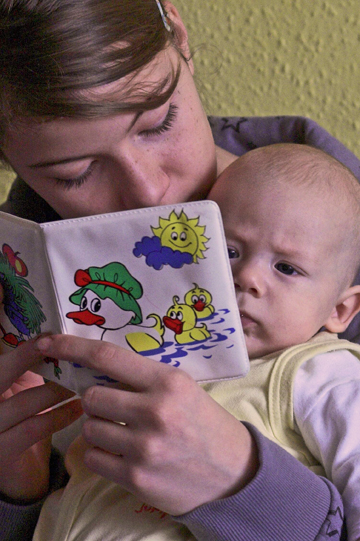I love to surround myself with smiling faces, especially my precious niece , Tiffany, 11, and nephew AJ, 7. Everyday they amaze me with heartfelt phone calls and text messages telling me how much they love me. Never was I more proud than this summer when they were visiting from Ohio and I found young Tiffany reading one of my books, The Gift. In fact, I ended up giving her the book she loved so much. You, See Tiffany is an avid reader who reads far above her grade level. Last year she won an award for having read the most books in her school…72! I am proud to say that I have read to Tiffany and AJ since they were first born…and I did the same for their mom. This is what motivated me to write about the importance of reading to children.
Studies show that there are several variables inter-related in the development of a child. The variables include physical, cognitive, social, spiritual and emotional components. All these variables are crucial to a child’s development. However one of the most important variables is reading. Reading to your child from infancy on has as influencing affect on all variables of development whether the evidence of it is directly visible or not. According to the American Association of Pediatrics (AAP), reading is a significant aid in brain development and encourages a solidifying, emotional bond between parent and child. The AAP recommend initiating a daily routine of reading for infants as well as older children. Unfortunately, studies show that only 50% of parents read to their children every day.
 Language is the most utilized form of communication. Children who are introduced to books as an early age are more prone to grasp the variances in phonics, which in turn affects their language skills and cognitive abilities. Research shows that children’s familiarity with books is taught by their mothers who typically are the main caregiver of a child. Moreover, the cause and effect of reading upon language skills and cognitive abilities is critical, yet progressive in nature. The more a child uses phonics to test out new words, the more he or she reads. The more the child reads, the more the child learns.
Language is the most utilized form of communication. Children who are introduced to books as an early age are more prone to grasp the variances in phonics, which in turn affects their language skills and cognitive abilities. Research shows that children’s familiarity with books is taught by their mothers who typically are the main caregiver of a child. Moreover, the cause and effect of reading upon language skills and cognitive abilities is critical, yet progressive in nature. The more a child uses phonics to test out new words, the more he or she reads. The more the child reads, the more the child learns.
The earliest years are truly the child’s most formative. From birth, children are sifting through stimuli and learning how to interact with their surroundings and the people with whom they’re in contact. Parents are crucial to laying a foundation upon which a child’s education is based. Parents are most often a child’s first teachers, and from them a child is taught no only fundamentals of education, but how to learn as well.
Reading is instrumental in forming a foundation upon which to build a child’s educational career. Whether the child in question is too young to comprehend the words on a page or not, makes no difference. Scientists, pediatricians and educators alike aggress that reading to children strengthens their resolving in learning. They also contend that setting an example by reading in front of children is one of the major ways to contribute to an interest in reading. Remember, your child is an active participant in his or her own development and education. Taking the time to interact with our child through reading is a gift that will keep on giving.
 This information is brought to you courtesy of Sprouts!, Inc., manufacturer of handmade, 100% recycled, plantable seed paper products, which include greeting cards, note cards, bookmarks, coasters, Blooming Boxes™ and a host of custom marketing pieces – all of which grow beautiful wildflowers when planted. Sprouts products can be purchased directly from the company’s website (www.sproutem.com) or custom printed to accommodate various volumes, sizes and print specifications.
This information is brought to you courtesy of Sprouts!, Inc., manufacturer of handmade, 100% recycled, plantable seed paper products, which include greeting cards, note cards, bookmarks, coasters, Blooming Boxes™ and a host of custom marketing pieces – all of which grow beautiful wildflowers when planted. Sprouts products can be purchased directly from the company’s website (www.sproutem.com) or custom printed to accommodate various volumes, sizes and print specifications.

